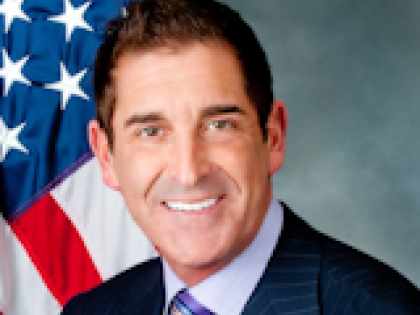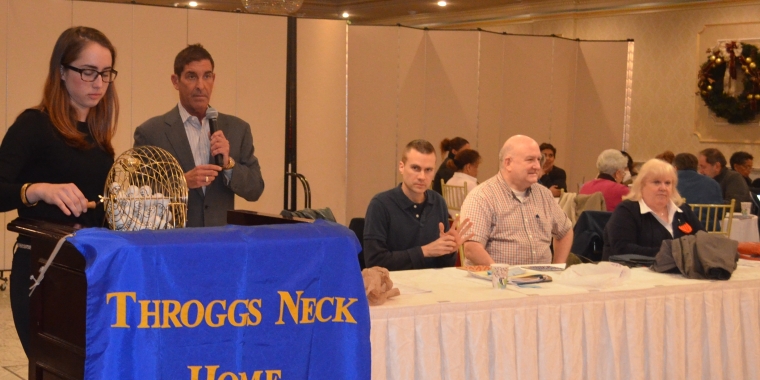
Banks steal $16 million from homeowners: IDC unveils “The Next Great American Bank Robbery”
January 5, 2016
Report details extensive costs of abandoned, decaying bank-owned properties dragging down neighborhoods -
with $2M stolen directly from New York City taxpayers
NEW YORK, NY— Senators Jeff Klein (D-Bronx Westchester) and Diane Savino (D-SI/Brooklyn), stood with victims and housing advocates today to unveil “The Great American Bank Robbery,” a distressing report detailing the multi-million dollar price tag abandoned and vacant properties cost communities throughout New York City. Joined by foreclosure and legal advocates, they called for a two-step legislative plan to hold banks accountable while ensuring that decaying properties are maintained.
The investigative report revealed neighborhoods where cars with missing plates rot in driveways, doors lay broken in front yards and garbage is strewn throughout decrepit unlocked houses. These vacant properties abandoned by banks stain entire communities, with $14.2 million lost in home value depreciation. Major banks skipped paying thousands of violations issued to these properties by Housing Preservation and Development (HPD), Department of Buildings (DOB), and Environmental Control Board (ECB), costing New York City taxpayers $2 million in unpaid fines.
Although current law requires banks to maintain foreclosed properties that they currently own, as of 2015, 200 bank-owned properties remained in the outer boroughs, with the majority failing to comply with New York State law. The report found that these abandoned properties had accumulated over $2 million in nearly 1,800 unpaid violations, while they cost another $14.4 million in depreciating home values. Queens County residents suffered the most, accounting for $7.4 million dollars in house price value depreciation.
“While foreclosure was the first great American bank robbery, the decrepit unmaintained properties that have resulted in its wake have become the next great American bank robbery, stealing money from taxpayers and value from homeowners. This report clearly illustrates the importance of passing my bank-owned property and zombie property bills - we must increase transparency so that banks are held accountable, and ensure that vacant properties are maintained from the moment we know they are abandoned. There has been enough damage done to our state and to our communities, and I am committed to working to make sure New Yorkers are no longer robbed of their property values and their quality-of-life,” said Senator Klein.
“Brooklyn and Staten Island were hit hard by the first foreclosure wave, and now struggle to recover while big banks drag down communities through their negligence. It is simply unacceptable for the banks to leave homes in these fetid conditions. As Chair of the Senate Banking Committee, I will ensure that we fully examine this issue and the detrimental effects it has on our working- and middle-class homeowners. I am proud to stand here with Senator Klein and call for the passage of these critical pieces of legislation that would hold banks accountable, increase transparency, and ensure that we are addressing abandoned properties before they cost our communities,” said Senator Savino.
The worst bank offender was Deutsche Bank, with nearly $400,000 in unpaid violations, with U.S. Bank following close behind. Midfirst Bank rounded out the top three with over $200,000 in penalties owed to New York City.
Many banks left homes with open violations. The worst offender is Wells Fargo with a total 367 open HPD and DOB/ECB violations.
The investigation additionally found that the cost of these decaying houses disproportionately affects minority communities and communities with high poverty rates. Eighty-one percent of bank-owned properties with open HPD, DOB, and/or ECB violations are located in Hispanic and black communities. Thanks to these decrepit houses, the report estimated that 2,500 private homeowners have experienced a decrease in quality of life. Of the 2,500 private homeowners, 2,000 are located in communities of color and 950 in areas with high poverty rates.
Studies show that when a home is left in disrepair it impacts surrounding property value within a 300-foot radius by 1.3 percent. As a result of the banks’ neglectful behavior, on average New York City homeowners lost $5,000 each. In total the IDC analysis found that homeowners in the City lost a total $14.4 million in home value.
Senators Klein and Savino proposed a two-step legislative package. The bank-owned property bill would increase transparency by creating a registry of vacant and abandoned properties in the state for the disposal of municipalities and the Office of the Attorney General, and grant the Attorney General the right to impose fines and initiate legal proceedings against financial institutions violating of the law. The zombie property legislation would require mortgagees and their loan servicing agents to maintain vacant properties from the point they are discovered to be abandoned, create a statewide registry of vacant and abandoned properties, and require the attorney general to set up a toll-free hotline for neighbors and community residents to report properties that they believe to be vacant and abandoned, report problems, as well as to find out information regarding the foreclosure status of these properties.
“I commend Senator Klein for his leadership on pressing banks and other lending institutions to maintain distressed vacant and abandoned properties, which impose a tremendous burden on neighborhoods all across New York State. My office will continue to work with Senator Klein, the legislature, and the administration to pass comprehensive legislation to address this issue. My office is prepared to utilize all available enforcement tools to force banks and lenders into compliance and to rebuild and revitalize New York communities,” said Attorney General Eric Schneiderman.
“Vacant and abandoned homes are a plague on neighborhoods across New York State. For families in the most impacted neighborhoods, zombie properties are a daily reminder of the significant and lingering effects of the foreclosure crisis. We applaud Senator Klein for his leadership on this critical issue and we urge the State Legislature to pass zombie property legislation that will help communities mitigate the impact of these abandoned properties,” said Christie Peale, Executive Director of the Center for NYC Neighborhoods.
“We applaud Senator Klein for his persistence in addressing the profound impact that vacant and abandoned homes continue to have on the quality of life in our neighborhoods, especially communities of color and those with high levels of poverty. The lack of effective property maintenance rules is not just dragging down property values – it is putting vulnerable New Yorkers at greater risk of crime and unsafe living conditions and severely impacting the economic and social vitality of our communities,” said Beth Goodman, President and Attorney-in-Charge of the New York Legal Assistance Group (NYLAG).
“Despite reports about rebounding real estate markets, New York continues to work through the worst foreclosure crisis since the Great Depression, with foreclosure cases representing roughly 30% of the New York Supreme Court’s civil caseload in 2015. New York’s struggling homeowners navigating the judicial foreclosure process are still fighting to obtain affordable loan modifications with mortgage servicers who all-too-often fail to comply with New York’s foreclosure settlement conference law requirements, and they are often harmed when foreclosing lenders drag out the loan modification process or fail to timely pursue their foreclosure cases, allowing interest and fees to mount with every passing month,” said Jacob Inwald, Director of Foreclosure Prevention at Legal Services NYC.
“Brooklyn Legal Services Corporation A has worked with homeowners in Brooklyn and Queens to prevent foreclosure and preserve homeownership. Preventing the spread of vacant and neglected properties supports the prosperous development of neighborhoods and communities in New York. By promoting bank accountability for these properties, this legislation promotes healthier communities and would hopefully incentivize banks to find more ways to help struggling homeowners keep their homes,” said Andrew Malozemoff, Brooklyn Legal Services Corporation.
“Communities are preserved and thrive when homeowners, building owners and tenants coordinate their activities. The foreclosure crisis has made it very evident that failing homeownership can threaten a neighborhood as do distressed multiple dwellings. I want to thank Senators Parker and Klein for ensuring that agencies like Housing and Family Services of the Greater New York can continue doing the work we do everyday helping people stay in their homes. We are particularly proud of our efforts on behalf of senior and disabled tenants having established a campaign to make sure that they were aware of the increase in the wage limit for the Senior and Disabled Citizen Rent Increase Exemption. Over the past year more than 1,000 senior and disabled residents have been assisted in obtaining this benefit that gives them the ability to continue to afford their housing,” said Larry Jayson, Executive Director of Housing and Family Services of Greater New York.
“Neighborhood home values have depreciated greatly in our neighborhood. These properties not only bring crime into the area, but also rats, mosquitoes, people dumping garbage, and worse. We've seen fires before, and we're at risk of having entire blocks burned to the ground, because of a lack of interest in these bank-owned homes. Let's not have the Bronx burned down again - let's stop this cycle of abandonment,” said Elbin Mena, President of the Harding Park Homeowners Association.
related legislation
Share this Article or Press Release
Newsroom
Go to NewsroomState Senator Jeff Klein turns up the heat on coldest Bronx buildings
November 30, 2014
State Senator Jeff Klein Turns Up the Heat on Coldest Bronx Buildings
November 30, 2014
State Senator Jeff Klein turns up the heat on coldest Bronx buildings
November 30, 2014
